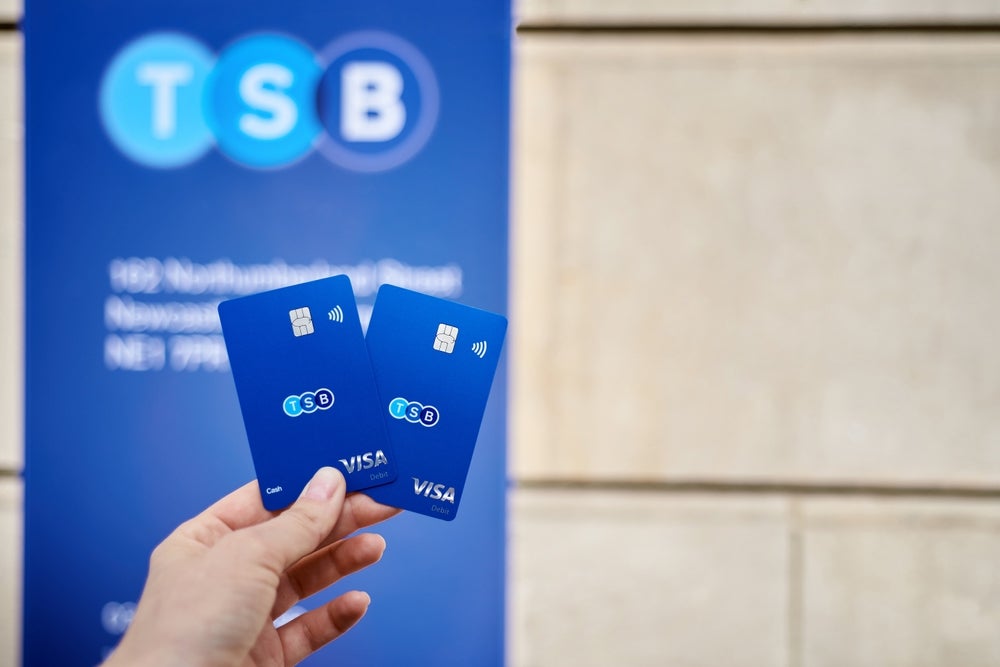In its Q2 2024 results, TSB declared half-year profits down 24.5% on H1 2023, citing competitive pressures in the mortgage market and rising deposit costs.
Findings from GlobalData’s 2024 Financial Services Consumer Survey (which was conducted in June 2024) suggest the bank has notably poor relationships with its customers.

US Tariffs are shifting - will you react or anticipate?
Don’t let policy changes catch you off guard. Stay proactive with real-time data and expert analysis.
By GlobalDataGlobalData UK Retail Banking: Competitor Benchmarking 2024 report
Its Net Promoter Score is a lowly 9%—the second lowest in GlobalData’s upcoming UK Retail Banking: Competitor Benchmarking 2024 report featuring the UK’s 14 largest banks. Additionally, satisfaction metrics suggest it is failing to meet customers’ digital expectations, feeding into an inability to develop and monetise relationships.
TSB has been challenged by leaders undercutting the mortgage market, leading to a slight decline in lending in Q2 2024 compared to the previous quarter. Rising interest rates have compressed TSB’s net interest margin, which declined by 22 basis points year on year to 2.62%.
TSB also reported a decline in savings and deposits held with the bank, although higher deposit costs from climbing rates ensured these deposits still took their toll on the bank’s net interest income. These costs offset the higher yields earned through lending. The proportional losses made by TSB are greater than key competitor Lloyds, while players such as Virgin Money and Monzo actually increased profits in this timeframe.
GlobalData 2024 Financial Services Consumer Survey
TSB states its strategy is on track to make the Sabadell subsidiary simple and easier to bank with. However, evidence from our 2024 Financial Services Consumer Survey suggests it has a long way to go in order to complete these aims. The bank’s net satisfaction scores for basic digital criteria such as platform navigability, innovative digital features, and a simple app login process were the lowest among all key UK competitors.
Moreover, customers are largely unsatisfied with the bank’s product pricing, loyalty rewards, and customer service (ranking the bank in the bottom three for each metric). TSB should refocus on delivering a high-quality experience and service for its customers which, given its swathe of branch closures, must come primarily through digital channels. Given its previous IT system migration debacle back in 2018, TSB has plenty to do to demonstrate its capacity to meet the standards expected of a contemporary digital bank.
TSB cross-sell ratio challenges
TSB’s failure to engage customers is further affecting its cross-selling ability. It is below the market average for selling credit cards, personal loans, and insurance to its own customers, illustrating the disconnect it has between its goals and its users’ feelings toward the bank. 25% of TSB’s customers do not own any other financial products with the bank, demonstrating its underperformance in monetising existing relationships.
As market conditions soften and market forces begin to work in banks’ favour again, improved financial performance in the coming quarters may paper over cracks in TSB’s operations. Of the customers who consider TSB to be their main bank, more believe it cannot support their financial goals than those who believe it can. As a host of digital challengers become genuine competitors, TSB may soon start to see its market shares and future performance diminish unless it can improve to match the competition.
Benjamin Hatton is an analyst, banking and payments at GlobalData










